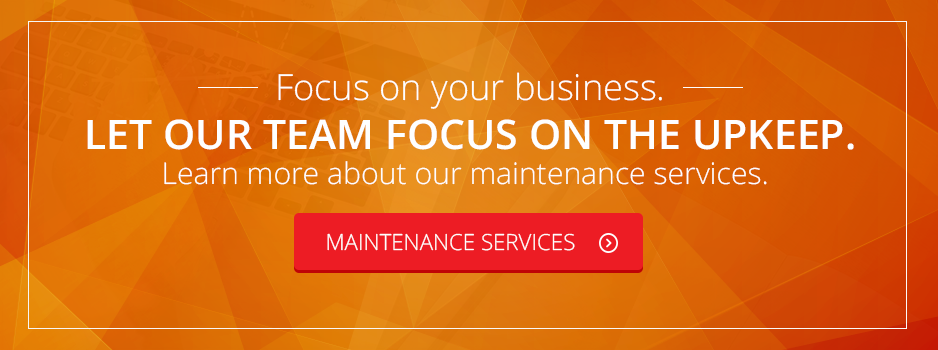
Few things are as detrimental to the success of your website as a slow loading time. The modern web has conditioned users to expect functional, stylish, and easy-to-use websites. It doesn’t matter how good-looking or powerful your site is—excessive loading times can drive away traffic. This will negatively impact your ad revenue, any sales of products or services on your site, or prevent people from viewing and sharing your content. In addition, your website is a major component of your company’s image and a poorly performing site can reflect badly on that image. Below are just a few possible reasons why your website may be loading slowly and how a website redesign can help you address the issue:
You Have Spaghetti Code
Poorly optimized and structured code is one of the most common causes for long loading times on a website. “Spaghetti code,” as developers refer to it, gets its name because its flow lacks any real structure and resembles a twisted mess of spaghetti. This problem often arises when a site is designed by an inexperienced developer, but can also be the result of a hastily created site or years of additions to the codebase by several developers. Without proper flow and structure, your code can become bulky and inefficient, making it slower to run and thereby dramatically impacting the end user’s experience. One of the first things that will be accomplished during a website redesign is taking a look at your codebase and determining where it can be optimized.
You’re Overusing Flash
Purely in terms of functionality and aesthetics, Flash is great for creating powerful and slick looking websites. However, this doesn’t come without a cost when it comes to performance. Flash elements can slow your website to a crawl, especially when used in a abundance due to the fact that files such as interactive video, GIFs, and sound effects carry a high-bandwidth demand. This is especially problematic for mobile users who may have limited bandwidth or devices that may not even support these elements. A website redesign can help you determine if Flash may be in part responsible for your slow website and replace the offending files with more user-friendly alternatives such as HTML5. If you’re still not convinced Flash has its drawbacks, consider that even search engines will rank websites lower when excessive Flash elements sometimes make them difficult to crawl.
You’re Not Using Optimized Images
Just as the high-bandwidth demand of some Flash elements can grind your website to a halt, images too can be guilty of this. It should be obvious by now that the larger the file, the longer the load time. Huge full-sized images on your website will take much longer to download than smaller images scaled to the proper size. If possible, try using smaller images or scaled versions of existing images to save on bandwidth. In most cases this can be accomplished with little to no degradation in image quality.
You Need a New Host
Even if you do everything else right, your website can still suffer from performance issues. If you’ve addressed other problem areas and slow loading times persist, it may be time to look into migrating to a new hosting service. Even the best designed website can run into problems if your host isn't up to the task. Cheap and free hosting services may be appealing in the short term, but whatever you save upfront you will likely end up paying for as users abandon your site for competitors. They may cost more initially, but many major hosting services offer unlimited bandwidth and storage. Not only will this improve your overall performance, but keep you online during times of high traffic.
Quick loading times are just as crucial to a website’s success as aesthetics and functionality. This is even reflected in how Google ranks websites for search results. One of their criteria for site rankings is loading time. The slower your site, the lower your ranking. If you want to keep your visitors happy, a website needs to be as much a pleasure to use as it to look at. Even a few extra seconds of loading time are enough to cause a user to bounce and visit a competitor's website instead. If you're concerned about a slow loading site a website redesign might be necessary. Regular maintenance and updates of your site can keep it running quickly and smoothly even as the web evolves around it.



